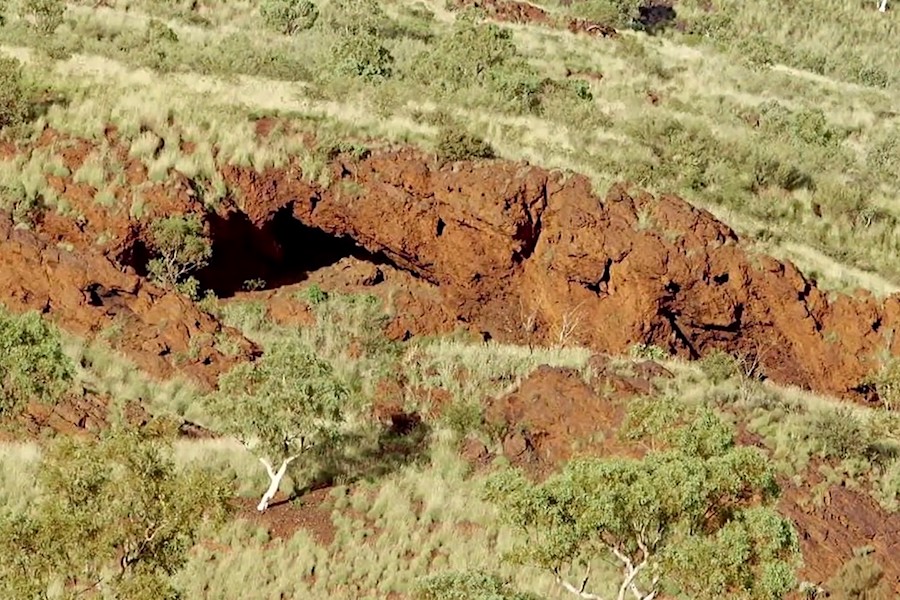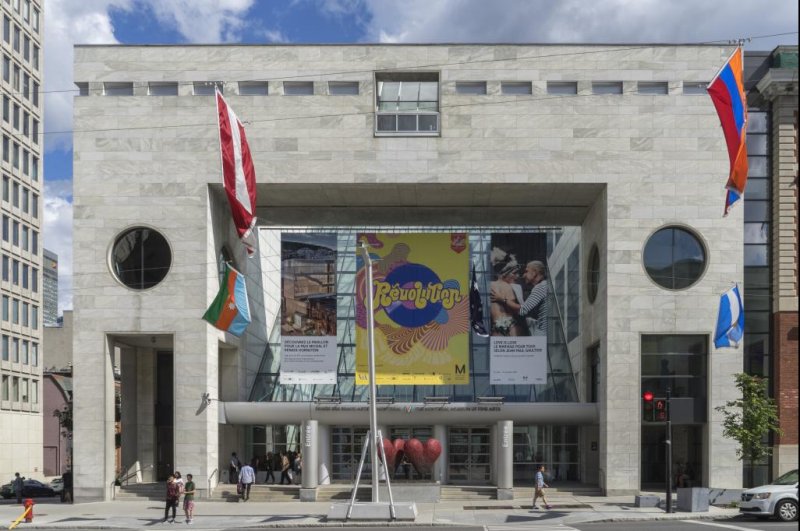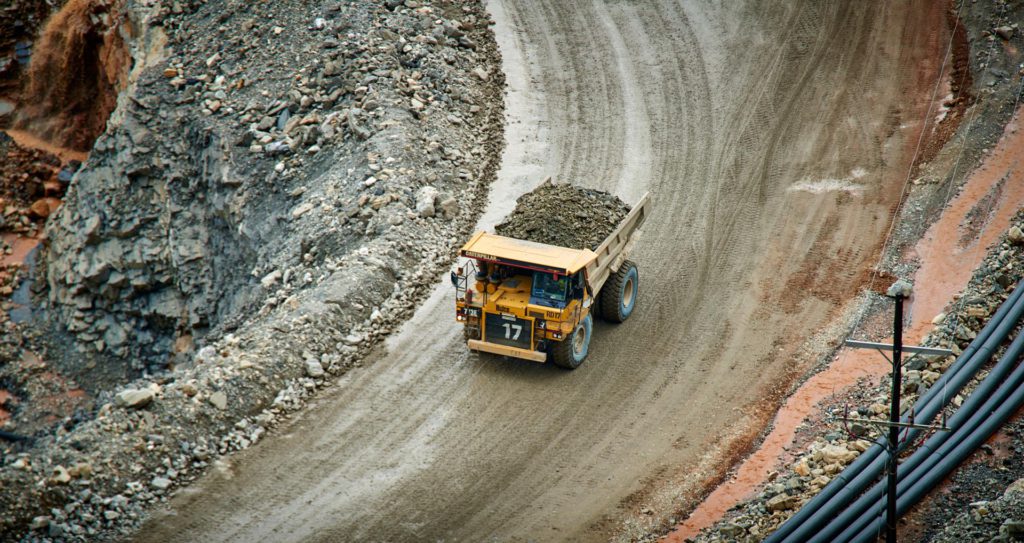 Well that didn't take long. King Ralph went from Premier to Oil Lobbyist in a blink of an eye. Faster than Lougheed and even Getty, his old big oil nemesis.
Well that didn't take long. King Ralph went from Premier to Oil Lobbyist in a blink of an eye. Faster than Lougheed and even Getty, his old big oil nemesis.
Klein slams Alberta royalty recommendation
And luckily he did it in Alberta, where weak tea lobbyist legislation was only just passed this spring. So it doesn't affect him. And he is doing it as they say; pro bono. Yep the Big Guy is out defending the Oil lobby and his own political decisions when it comes to selling out Albertans to the Calgary Oil Lobby.
Remember Ken Kowalski's 1994 appointment to chair the Alberta Energy and Utilities Board? It stirred up so much oilpatch opposition that then premier Ralph Klein had to rescind the post he gave the former deputy premier who'd been freshly bounced from cabinet.For a decade Albertans have been ripped off of profits from our resources, shoring up the oil industry with subsidies directly and indirectly, the latter being our penny on the dollar royalty rate for developing the tarsands. The result was the famous neo-con Klein Revolution, for which he annually collected gold medals from the Fraser Institute, which then went on to hire him once he retired as premier.Governments in Alberta and elsewhere have traditionally rewarded loyal supporters with plum appointments, often over the hue and cry of opposition parties and the general public.
The Kowalski appointment enraged a sector with considerably more clout: Big Oil. When it said the position required somebody more qualified and less political, Klein was forced to respond.
Should we be surprised he defends his regimes sell out of Alberta, native and Canadian resources? Of course not. He was after all the Premier the Party of Calgary picked. The Party of Calgary has become the bugaboo of Edmonton Sun columnist Neil Waugh, who describes them as the oil aristocracy.
Which, in a sentence, is Big Oil's strategy as the Stelmach Tories attempt to claw back $2 billion a year in energy revenues - largely from Calgary's oilsands aristocrats,who have been awarding themselves multimillion-dollar annual salaries while the owners of the resource get a penny on the dollar payout until the massive capital costs are recovered.
While Rick Bell his counterpart at the Calgary Sun gleefully pulls Big Oils beard in his column. Reminding us from his window view of Petro Plaza,
Tory MLAs are being reminded of who runs the show, or who think they run the show, or who did the show until now.
On Tuesday, mere minutes after a report called for the province to hike oil and gas royalties and get a fair share for the resource Albertans own, the oil industry sent the provincial powers a simple one word e-mail.
It read: "Disaster."
Interesting the oilpatch isn't commenting on the fact, on natural gas alone, Albertans are out about $6 billion. That's $6 billion that could have gone to affordable housing, schools, health facilities, other public building projects, a tax break, savings to the Heritage Fund and on and on.
The reality is that the Hunt Report outright says that Albertans have been shortchanged for a decade when it comes to oil royalties.
Royalty review calls for massive jump in oilsands payoutsA panel reviewing the fairness of Alberta's royalty take from oil and gas development said today Albertans are not collecting a fair share and recommended a massive jump in royalties paid by oilsands projects.
The six-member panel headed by Bill Hunter recommended that the government's overall take from oilsands projects be raised to 64%, from 49% today. The panel recommends leaving the 1% pre-payout royalty unchanged, but that the post-pay out royalty be increased to 33%, from 25%.
"Albertans do not receive their fair share from energy development and they have not, in fact, been receiving their fair share for quite some time," Mr. Hunter said in a letter to Alberta Finance Minister Lyle Oberg. "Royalty rates and formulas have not kept pace with changes in the resource base, world energy markets and conditions in other energy rich jurisdictions. Albertans own the resource."
Billions of dollars have been pocketed by the private interests while Ralph declared debt and deficit hysteria, cut jobs, delayed infrastructure, destroyed the health care system by laying off nurses and reducing graduates for their jobs and those of doctors, contracting out services, etc. He told us we were broke, and had to tighten our belts, the debt and deficit crisis was described by King Ralph as the need to not renovate our house, but to demolish and rebuild.
One of his would be heir apparent's is our current provincial treasurer Lyle Oberg, a true believer, who says dark days are upon us. Of course he too opposes asking for what belongs to the people, a just royalty for our resources.
In that wonderfully twisted world of social conservatism the politics of giving unto Caesar has become the economics of giving unto Big Oil. The logic goes like this, if it weren't for big oil the PC party would be nothing, so it does it all it can for Big Oil. Now like all One Party States this logic is then transformed into what is good for Big Oil is good for Alberta.
The irony is that this royalty scam was not even created by Klein. Rather it was created after the collapse of the global oil market in 1984 by then Petro Premier Don Getty. Don being the oil boys insider for the moment, Klein was able to scape goat him for all of Alberta's economic problems which were a result of the market melt down, the recession of the eighties. So when the momentary debt and deficit crunch came world wide, Klein was ready to step in. Rather than end the tax and royalty holiday for Big Oil, he continued it and turned on the people of Alberta to pay for the deficit.
Deficits are not permanent, they are a year by year accounting phenomena. A debt on the other hand exists and transfers from year to year. A debt is what you owe someone else. You cannot have a debt to yourself. But in the wonderful Wizard of Oz Topsy turvy world of neo-con logic, government financed and owned infrastructure was seen as a business cost rather than as an asset.
The wailing and gnashing of teeth from the industry lobbyists, including Klein, and those in the investment business is predictable if somewhat disingenuous. After all this is Alberta, not Saskatchewan or Manitoba. This is a Tory run one party state at the beck and call of the Petroleum Club in Calgary. And the panel doing the review well it was stacked with capitalists.
The report was written by a six-member, blue-ribbon panel named by the government. The members included two economics professors, a chief economist for an Calgary-based energy research firm, a businessman, a forestry executive and a former senior executive with an oil company.
If anything, the panel was seen as too pro-business. In fact, the appointment of Sam Spanglet to the panel caused a stir back in February when news broke that the former oil executive still had "a couple of million" dollars worth of stock options with Shell Canada.
As if to bolster the opposition's accusation, the Canadian Association of Petroleum Producers was reportedly pleased with the panel's members and their credibility.
It seemed just about everyone was predicting the panel would deliver an industry-friendly conclusion.
One of the funniest comments comes from an one of those dime a dozen investment newsletters;
"Do they really wish to kill this golden goose with one fell swing of the tax axe?" said economist Dennis Gartman, editor of the Gartman Letter, an influential investment newsletter based in Virginia, who was "shedding tears" about Alberta going "socialist" and wondering whether the provincial government has "gone mad."
Socialist, well gee where has he been. Let's see Alberta is dominated by one party, a party that has been in power so long it naturally thinks it is the government. One that has subsidized the oil industry at the cost of the owners fair share. That spells socialism to me....well state capitalism actually, but for the rabid right they are the same. As ex- King Ralph pointed out;
"It was a regime created by industry and government. Those kinds of rules don't change on a whim. Companies are nervous."
And then there are those who, like our Treasurer Lyle Oberg, are doom and gloom proponents who claim that the sky is falling and once again are declaring impending debt and deficits. The reality is that it was the royalty holiday that Getty gave the industry that led to the deficit crisis of 93-95 that gave Klein an excuse to implement the Fraser Institutes neo-con revolution in Alberta.
On page 23, for example, the report points out "The panel was constantly told by companies and by energy industry trade groups that Alberta ranked very high in Government Take." However, those companies and groups were citing from an outdated 1997 report by an international expert. The review panel commissioned the same international expert who compiled new data and concluded "the very opposite is now unequivocally true."
In this case its also the oil and gas industries who are claiming a crisis in their industry and again have their hands out asking for more state subsidies.
Yet, because of public expectations, it's unlikely the panel will recommend what's needed at this time: a reduction in royalties to salvage what's left of this vital part of the sector. Indeed, there are indications the slump is not just another cycle, but a structural change that will require new thinking from everyone -- industry, government and labour -- to reduce costs so it can compete with the cheap imports of liquefied natural gas invading the U.S. market, once dominated by Alberta producers.
Oh you didn't know there was a slump in the oil and gas business? It didn't appear that there was according to the markets this week.
Oil prices hit record highs
Oil dips, but gas prices set to rise
Taking Cues From Fed, Speculators Bid Up Oil
More oil firms hike fuel prices
Crude oil sails over $80 buoyed by bullish mkt
Oil near new high amid tight supplies
Well there is. It's called peak oil and the industry is panicking over its potential impact. Alberta's conventional oil and gas reserves will peak in 2020 and begin to decline, as will provincial revenues. And so the oil business in Alberta is focused on developing the tarsands output, regardless of costs to the public or the environment, by then.
Well frankly that's a good thing since the boom is artificial and has caused untold problems in Alberta. We need a planned economy from our 'socialist' government, since the oil sands development has gotten out of control.A litany of Canadian investment banks also pulled no punches in their assessment of the proposals in the Our Fair Share report.
FirstEnergy Capital Corp. warned the proposed measures, in a report entitled "Albertastan? Misguided Intentions and the Fair Share Option," would be "negative if adopted, and will slow down the development of oilsands."
Since Prince Eddies government refuses to adopt such a plan, then if the royalty regime forces a slow down all the better. Alberta is an overheated economy. One that is sure to bust big, because no boom is sustainable. And woe betide Albertans if that happens. The boom of the seventies and early eighties was followed by a quarter century recession in the province. One that was used as an excuse to rack up surpluses at the expense of public services and infrastructure expenditures.
Stelmach says he'd stand up to big oil
Be still my beating heart. Anyone who thinks Farmer Ed is going to accept this report in whole, has missed the fact he has not accepted the recommendations of any public reports that he called for upon his appointment as Alberta's CEO. He has adopted the minimum to make him look good sometimes that has meant rejecting the public reports and making a big deal out of the fact he asked for them.
We need only remember the Alberta Housing Report, which called for rent controls. He rejected this outright. He has rejected the public commission calling for controlled growth and a slow down in oil sands development as well.
A columnist at the U of C student newspaper the Gauntlet sums it up well.
Furthermore, even if the provincial government does go for the whole 20 per cent increase, Alberta’s royalty rates will still be some of the lowest in the world. And don’t try to tell me that all the oil companies will uproot and flee the country the second people start talking about increasing royalties. As a fellow editor commented to me recently, “They’re in the oil business. They’ll go where the oil is.” The oil companies have invested too much money and stand to make far too much money for them to vanish in a cloud of carbon monoxide like the conservatives are arguing.
Anybody who has studied the provincial Conservatives in even the shallowest capacity knows that Premier Ed “Steady Eddy” Stelmach will likely not raise royalties at all come Oct. when he makes the decision. If royalties are increased, it will likely be by just enough for Stelmach to seem like a populist without putting even the slightest dent in Big Oil’s beer budget. This isn’t necessarily is bad thing; the quality of life in Alberta will continue to improve at the same rate it always has if nothing is done. There’s no immediate negative consequence in deferring to the oil companies on this one, and that’s likely why nothing will be done: nobody wants to rock the boat. However, it’s worth considering the possibilities of even a slight increase.
And those who are in the known when it comes to economics agree. Big Oil will stomp their feet and wail but all is for naught. They will go where the oil is and if they don't well there are the Chinese, and Japanese, and....
That is rich, There Is No Alternative. TINA. The famous neo-con excuse for selling off government services to embrace the Market. And now the shoe is on the other foot for Big Oil. TINA. LOL.
Alberta premier walks into lion‘s den with business leaders over royalty review
Many of the business leaders attending the event said whether Stelmach chooses in the coming weeks to adopt the report‘s recommendations or not will be his most important decision, not just for now but for generations to come.
“My view is that the province should just out of hand reject this report because ... the decisions that they made are totally out of touch with the economy and what‘s happening around the world right now,‘‘ said Doug Mitchell, co-chairman of the forum.
“I don‘t see any credibility whatsoever in the report.‘‘
But one energy specialist said regardless of what Stelmach decides, the oilsands are too rich and vast for industry to ignore.
Ken Moors, a managing partner of Risk Management Associates in Pittsburgh, Pa., said he has brokered royalty deals around the globe and he believes Stelmach has been smart to make this dispute a public one.
“This is a rare opportunity for a democracy to do things in the open,‘‘ he said.
“But you must remember that every other time these royalty situations have been advanced in other countries, they‘ve been advanced in a market in which the expectation was that supply was going down. This is the only example I‘ve ever seen where these are being introduced in a market where the supply is bound to go up.‘‘He said the province will still be very competitive with other countries.
"It is not going to take place . . . this is the only major supply side push left in the international oil market, so people either invest here or they see their profit margins dwindling in the future -- there is no other alternative," he said.
Amongst the sturm and drang of capitalist outrage in columns in the National and Financial Post comes a whiff of wisdom if not prudent observation.
Just like Danny Williams is doing in Newfoundland except in order to get his folks the best deal he didn't sell the goose, just a part of the golden egg. Funny thing the same folks whining over the Alberta Royalty report said this about Danny's provincial version of Petro-Can;Diane Francis, Financial Post
Published: Saturday, September 22, 2007
It's important to note that what is being discussed is not taxation but the royalty paid to Albertans who own the lion's share of subsurface mineral rights in the province. And they are not getting as much revenue from their resources as competing jurisdictions are, according to the report. Industry spokesmen dispute the numbers and say Alberta's take is already high enough, and any higher will drive away investment.For instance, conventional oil and gas royalties and taxes in the U.S. average 67% while they are 50% in Alberta, said the report.
Non-conventional oil production -- offshore and heavy oil -- is another interesting story. Heavy oil royalties in Cold Lake are 60% compared with Nor-way's offshore royalties of 76%, California's heavy-oil royalties (and taxes) of 67.5% and Venezuela's 72%.
To me, both the markets and media have been hysterical about nothing. Stelmach is not some fiscal confiscator. He's the CEO of the most valuable jurisdiction in the Western hemisphere and his review of royalties is simply prudent business practice.
Gee you don't hear that from the CAPP when it comes to Alberta's Royalty Revue.
Paul Barnes, the St. John's-based spokesman for the Canadian Association of Petroleum Producers, said state equity stakes are common throughout the world beyond North America and Europe. He said his members are prepared to negotiate exact figures for specific deals. "It's not overly concerning to our members that equity participation is on the table here because we experience it on worldwide basis."
"At first blush," gulped Canadian Association of Petroleum Producers spokesman Greg "Sky is Falling" Stringham, "this is far worse than anticipated."
So what is all the fuss about, why the chicken little exercise in outrage? What does this dastardly commie socialist pinko report say. Well it is damning of years of incompetence by an entrenched and debouched Tory party of Calgary Oil insiders.
A tired old party that instead of collecting what is owed to Albertans by Big Oil for the past decade, forget just the last few years of booming oil prices, gave them a royalty holiday paid for by Albertans. We paid in increased user fees, privatization, contracting out, wage freezes in the public sector, caps on AISH payments and claw backs,kicking the poor off welfare, selling off the ALCB at fire sale prices, systemic mistreatment of seniors in seniors homes, the Health Care premium which is a tax grab, failure to invest in infrastructure, firing of nurses and doctors, capping of nursing and doctor graduates in Alberta universities, not only closing but blowing up hospitals, lack of vocational and technical education that has led to current labour shortages, etc. etc.
The government makes more money off gambling then it does off either royalties or taxes on conventional oil and gas and the tarsands.
And no matter what Stelmach does, he cannot make up for being part of a government that at best was asleep at the wheel for two decades, at worst was implementing harsh cuts and reconstructing the state according to a neo-con agenda that was never for the benefit of the people of Alberta but to please the Fraser Institute and its pals.
Stelmach will never, ever, ask for the billions Big Oil owes the people of Alberta who had to pay for Ralph Klein's renovation of the province for their and the Fraser Institutes benefit.
The Conservative regime has forgotten that natural resources belong to Albertans and not developers, says the report from the royalty review panel appointed by the same government.Once again the real Alberta Deficit is revealed, the democratic deficit. So the next time some Alberta Conservative MLA or MP, they are after all joined at the hip, talks about accountability, transparency, honest government, usually pointing fingers at Liberals in Ottawa, just ask them if they know where the missing billions from Big Oil are squirreled away.And the Alberta Energy ministry is bracing for another unsparing probe next month of how it handles royalties from Auditor General Fred Dunn.
His office has chided the government in past years for being unable to effectively track what companies owe in royalties, and suggested the problem was costing hundreds of millions of dollars in royalty losses.
But the royalty review panel took the criticisms much further, recommending a new oversight body and far better reporting to the public.
"During our review we discovered an absence of accountability from the government to Albertans, the owners of resources," panel chairman Bill Hunter told reporters this week. "We encountered significant difficulty in accessing information -- to have even simple questions answered."
"How the administration or public leaders make informed decisions in this vital arena is an open question," says the review report, made public Tuesday."In the case of Alberta's multibillion-dollar energy reserves, seen as an enterprise, the onus on government to inform the public should actually be orders of magnitude higher," the report said. "Stated politely, this standard of disclosure is not presently being met.
"The panel is of the opinion that the government has not built up sufficient expertise and capacity to administer and manage this complexity."
It also identified a specific problem of missing money, or "what preliminarily seems like a pattern of material deferral of payments that is not in the interests of Albertans."
Read it for yourself.
Royalty Review Panel final report
SEE:
Transparency Alberta Style
Closing The Barn Door
Find blog posts, photos, events and more off-site about:
Stelmach, Alberta, tarsands, oilsands, Canada, state capitalism, royalties, oil, profits,
Atlantic Accord, Newfoundland, Premier, Danny, Williams, Province,
Bill Hunt, Alberta Royalty Review,
Alberta Cabinet, CAPP, Ed Stelmach,
Big Oil,oil royalties, PC, Calgary, Party of Calgary, politics, NEP, Conservatives, Fort McMurray, One Party State,
Technocracy, peak-oil, Hubbert,





